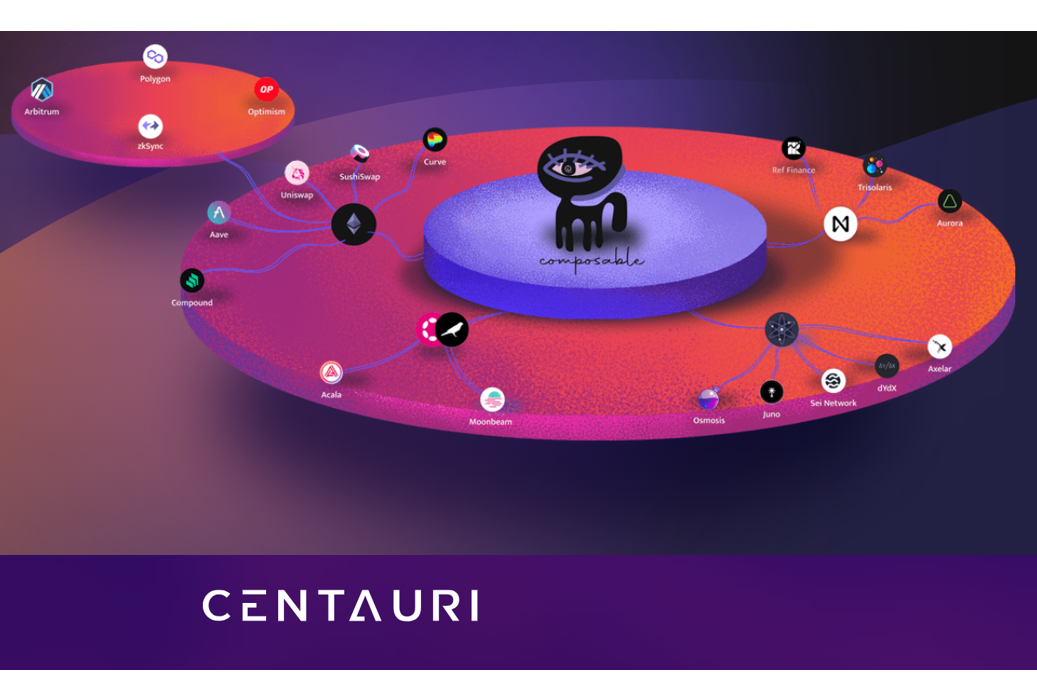
According to a recent announcement, Composable Finance, a decentralized finance (DeFi) development firm, has extended the reach of blockchain interoperability, marking a significant milestone for the cryptocurrency industry. Through the expansion of its Inter-blockchain Communication (IBC) protocol, previously restricted to the Cosmos ecosystem, Composable is bridging Polkadot, Kusama and Cosmos to create a more streamlined, secure, and interconnected landscape for both developers and end users.
Composable has now launched Centauri — the name of this feature — on Picasso, its own Kusama parachain. Centauri represents an instance of trustless functionality between three significant blockchain ecosystems: Polkadot, Kusama, and Cosmos. This accomplishment greatly diminishes the risks linked with cross-chain functionality and transactions by eliminating the need for solutions that require trust in third-party custodians.
In essence, users can seamlessly move their assets across ecosystems in a secure manner, thereby maximizing cross-chain opportunities. This has been made possible by enabling IBC connections across these ecosystems. Consequently, any of the 46+ IBC-enabled Cosmos chains can now conduct trustless transfers with any of the 80+ Polkadot & Kusama parachains.
Composable's commitment to secure and seamless blockchain interoperability is manifested in its ongoing efforts to expand the IBC. With its first two Centauri connections up and running, Composable's focus is to provide a more unified and interconnected cross-ecosystem infrastructure for users across even more diverse platforms. The company's roadmap also includes bridging Ethereum. Earlier this year the company received a grant from Near protocol to deploy Centauri onto its ecosystem.

DeFi stands to gain greatly from the development of blockchain interoperability. At its core, interoperability can be a catalyst for growth and innovation, effectively unlocking the full potential of DeFi by creating a more fluid, inclusive, and efficient financial ecosystem.
One of the most profound benefits is the ability to share and pool liquidity across multiple blockchains. Currently, most DeFi platforms are isolated within specific blockchain networks — mostly Ethereum. While Ethereum hosts a plethora of DeFi applications, it also occasionally suffers from high transaction fees and scalability issues. Blockchain interoperability allows DeFi platforms to tap into liquidity and user bases from different chains, effectively alleviating these limitations. This increased access to liquidity can lead to more efficient markets and reduced costs for end users.
Additionally, interoperability fosters an environment for more innovative and complex financial products. With different blockchains excelling in various niches due to their unique features and strengths, the cross-pollination of these capabilities could lead to the creation of diverse, novel DeFi applications that harness the best attributes of each chain.
